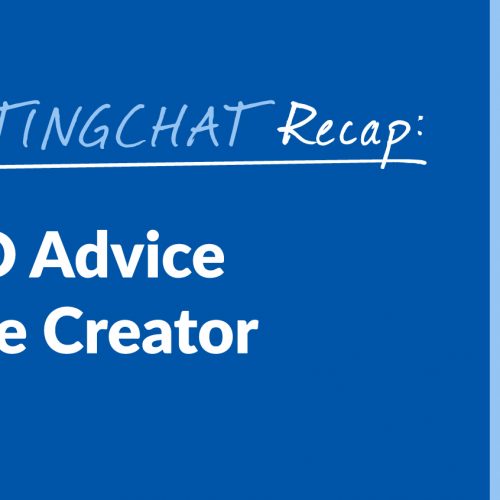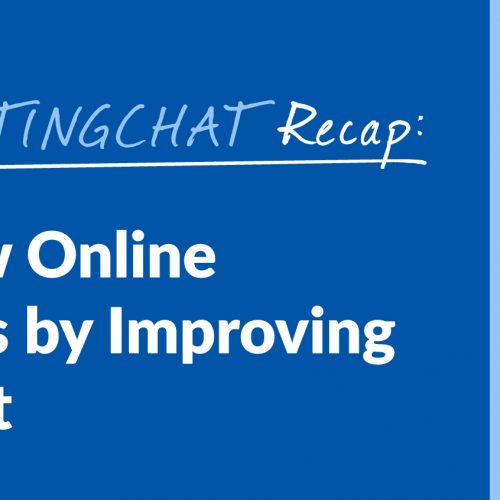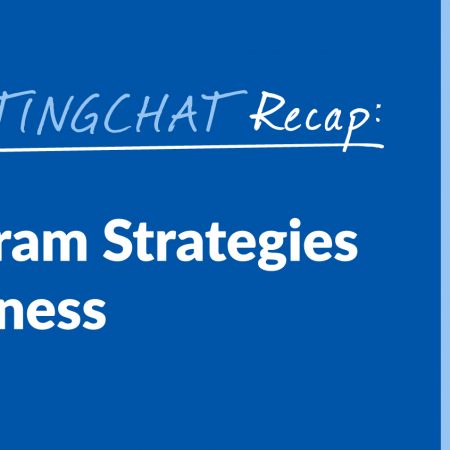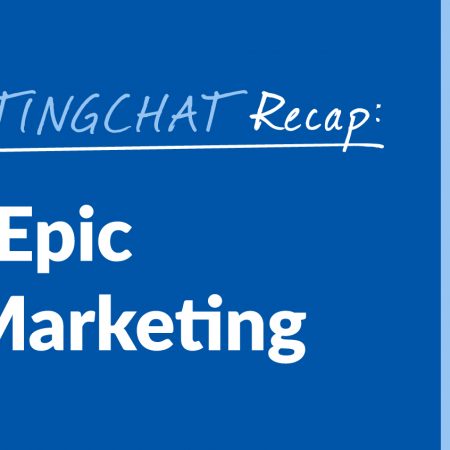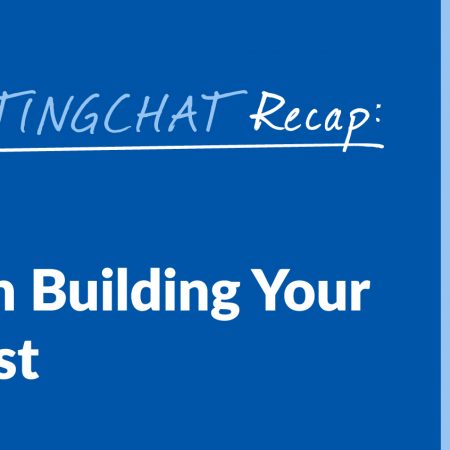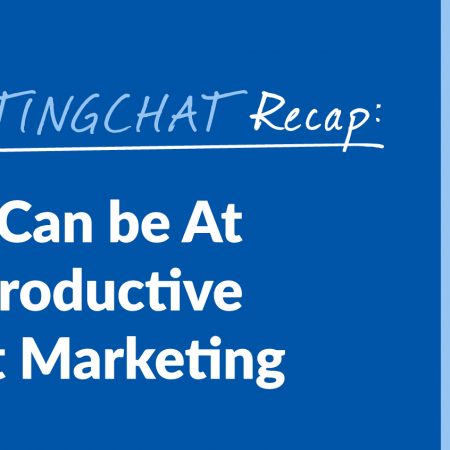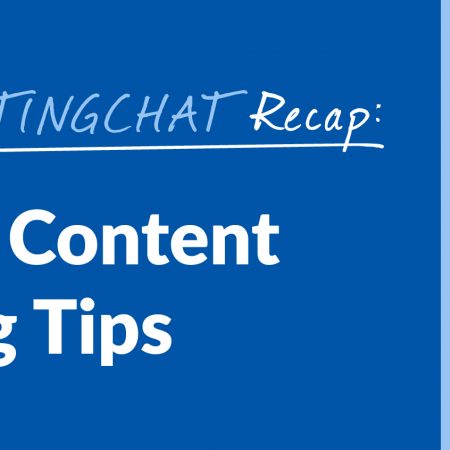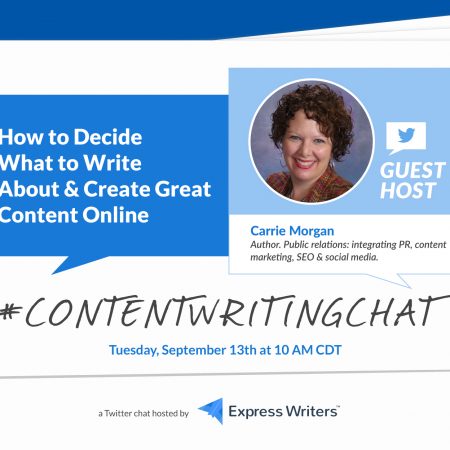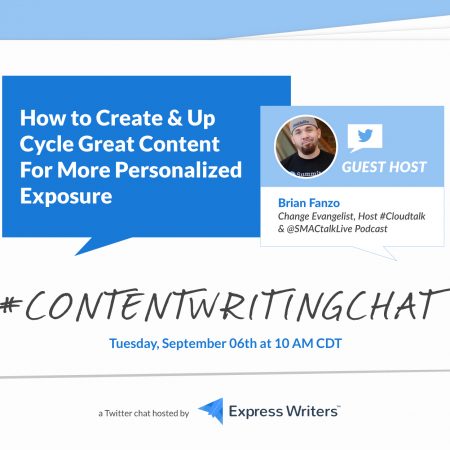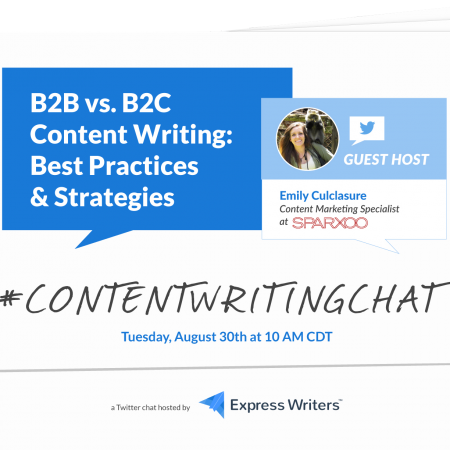#ContentWritingChat Recap: Practical SEO Advice for the Online Creator with Caleb McElveen
Are you ready to catch up on this week’s #ContentWritingChat? We’ve prepared an awesome recap with some of the tweets from Tuesday’s chat, so get ready to dive in! #ContentWritingChat Recap: Practical SEO Advice for the Online Creator with Caleb McElveen Join us for #ContentWritingChat on Tuesday, November 1st at 10 AM Central Time with @cj_mce of @Searchtalklive! pic.twitter.com/Hvnvt43BfR — Express Writers (@ExpWriters) October 25, 2016 Our guest host this week was Caleb McElveen. Caleb is and SEO and content marketing specialist. He’s also a co-host on the digital marketing podcast, Search Talk Live. Q1: What are the basics of SEO every content creator should know? SEO doesn’t have to be hard to figure out! In fact, if you’re just getting started with optimizing your content, these basic tips are great to know: A1) Learn to correctly optimize title tags, meta descriptions, headers, & more. Understand how they impact performance. #ContentWritingChat — caleb mcelveen (@cj_mce) November 1, 2016 A1) Also, its important to understand user intent when creating content. It can heavily impact your SEO strategy. #ContentWritingChat — caleb mcelveen (@cj_mce) November 1, 2016 Caleb said it’s important to know how to correctly optimize title tags, meta descriptions, headers, and more. All of these things impact the performance of your content, so it’s helpful to know the best ways to optimize them in order to maximize your results. He also recommends understanding user intent when creating content because it can also impact your SEO strategy. A1: Keywords! How’s your audience using/searching for them? Use those thru-out copy, in <h> tags, description, etc. #ContentWritingChat https://t.co/3b7WRAH6l9 — ThinkSEM (@ThinkSEM) November 1, 2016 Sarah knows keywords are essential to SEO! She recommends figuring out how your audience is using and searching for keywords, which will help you choose the right ones for your content. You’ll also want to sprinkle those keywords throughout your content in heading tags, meta description, and more. A1) Proper keywording. Find those popular, relevant keywords about your content that will help people find it easier #ContentWritingChat — Jason Schemmel (@JasonSchemmel) November 1, 2016 Jason also agrees understanding keywords is very important! He recommends finding the popular and relevant keywords that will help your audience find your content. A1. SEO and readability should work together, not against each other, to make your content easily searchable + scannable #contentwritingchat — Kristen Dunleavy (@KristenWritesIt) November 1, 2016 Kristen is right on with her answer! She said that SEO and readability should work together. You should never sacrifice readability for the sake of trying to rank higher. Providing great content for your audience should always be priority number one. A1: Never overstuff with keywords! Write naturally and then use some SEO dust before publishing. #contentwritingchat — Netvantage Marketing (@netvantage) November 1, 2016 One big SEO don’t? Keyword stuffing! It’s not cool to overdo it on the keywords because Google doesn’t like it and neither do your readers. We’ll have some more SEO mistakes coming up in the next question! Q2: What are the biggest mistakes people make when it comes to SEO? There are some common SEO mistakes people make when creating their online content. It’s important to know what they are so you can avoid them! Here are a few mistakes you don’t want to make: A2) Not having or using keyword/phrase correctly. Often it’s not used in titles & more, or there’s keyword stuffing. #ContentWritingChat — caleb mcelveen (@cj_mce) November 1, 2016 A2) Also, many forget to optimize images and other media that impacts SEO and how users can find them. #ContentWritingChat — caleb mcelveen (@cj_mce) November 1, 2016 Caleb knows many people make mistakes when it comes to keywords. In some cases, people fail to use the keyword correctly or don’t even have one. Make sure you’re using your focus keyword in titles and throughout your content without going overboard. Keyword stuffing is a big no-no! He also said not to forget about optimizing the images you share. They’re searchable as well and you want to make sure you take that extra step to optimize them. A2) Using keywords that aren’t used as often. Don’t waste space on useless words that won’t help you get noticed. #ContentWritingChat — Jason Schemmel (@JasonSchemmel) November 1, 2016 As Jason said, using keywords that aren’t used as often won’t help you see results. You need to do your research to find the right keywords for your content. A2: Ignoring SEO by thinking body copy isn’t necessary for success. They think it’s just page titles and meta. #contentwritingchat — Netvantage Marketing (@netvantage) November 1, 2016 A2 Mistake 1 is ignoring SEO. 93% of online experiences start with a web search. #ContentWritingChat — Lex (@estherproject) November 1, 2016 Ignoring SEO is a huge mistake! If you want your content to be seen, you need to learn about the best SEO practices and start putting them to use with your own online content. @ExpWriters A2 – Writing for SEO purposes only, missing the actual personality and story. #ContentWritingChat — globalHMA (@globalHMA) November 1, 2016 a2: Thinking that it’s all about Google. Yes – rankings matter! But creating content people want to read is priority! #contentwritingchat — Jobs2Careers (@Jobs2Careers) November 1, 2016 Remember that SEO is important, but there’s so much more to you content than just the optimization process. You have to start with a piece of quality content that shows personality and tells a story in order to really attract people. A2 thinking they understand it by reading about it and not implementing it. I’m still learning everyday about SEO #ContentWritingChat — Tony Stephan (@OmnipoTony) November 1, 2016 Never stop learning. SEO changes and it’s important to stay updated on all the latest information. Don’t fall into the trap of thinking you know everything about SEO. Make sure you’re actively learning about the best practices and implementing them. Q3: What steps can you take to get your content on the first page of search results? As an online content creator, one of your dreams is … Read more
